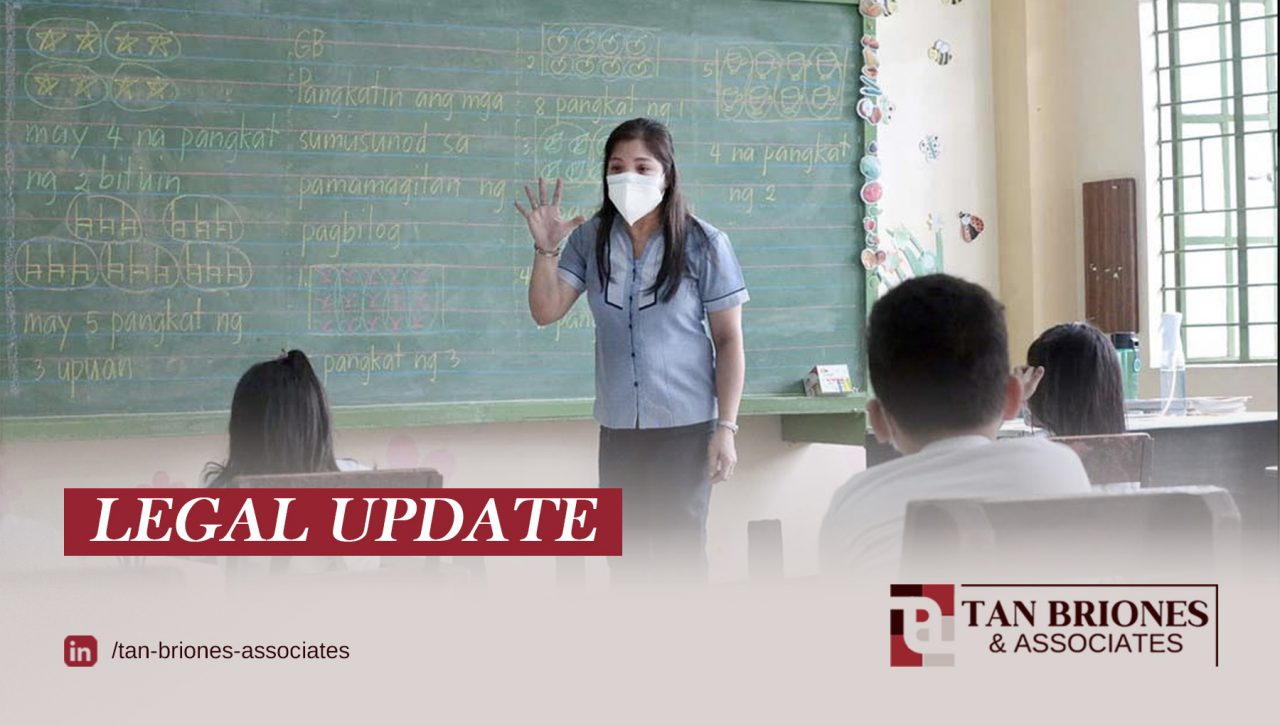
The Supreme Court (SC) has ruled that teachers may be held civilly liable for damages caused by students under their supervision, especially if they fail to exercise due diligence in ensuring safety.
In a decision penned by Associate Justice Ramon Paul L. Hernando, the SC’s First Division held a school principal liable for a fatal accident after he instructed a student to cut down a banana plant without proper safety precautions.
Citing Articles 218 and 219 of the Family Code, the Court emphasized that educators have special parental authority over students and can be held accountable unless they prove they exercised the diligence of a good parent to prevent harm.
FACTS AND ISSUE
The case stemmed from a 1998 incident involving Gil Apolinario, principal of Barangay Palale Elementary School in Sta. Margarita, Samar, who organized a school cleanup activity.
As part of the event, he instructed 16-year-old student Rico Villahermosa to cut down a banana plant near Maharlika Highway. However, the plant fell onto Francisco De Los Santos, who was riding his motorcycle at the time, causing severe head injuries that later led to his death in the hospital.
De Los Santos’ heirs filed a civil case for damages against Apolinario and Teresita Villahermosa, the student’s mother, arguing that negligence led to the fatal incident.
The victim’s heirs contended that Apolinario failed to take precautions, such as placing warning signs or ensuring adult supervision, which could have prevented the accident. They claimed that as the person in charge, he was negligent and should be held liable.
Apolinario, in his defense, argued that he was not supervising the student at the time and that Rico was under the watch of other teachers. He also asserted that the student’s mother should be held liable instead, as she had sent her child to the activity without informing the school.
The Regional Trial Court (RTC) ruled in favor of the heirs of Francisco De Los Santos, holding Apolinario liable for negligence after finding that he directly instructed the student and failed to exercise due diligence in preventing harm.
The RTC ordered Apolinario to pay PHP 428,880 for loss of earning capacity, along with other damages.
On appeal, the Court of Appeals (CA) affirmed the RTC’s ruling but deleted the award for exemplary damages and attorney’s fees. The CA ruled that Apolinario was responsible for the student’s actions, as the activity was conducted under his supervision.
Apolinario elevated the case to the SC, questioning whether he should be held civilly liable for the student’s actions despite his claim that he was not supervising at the time and whether the award for loss of earning capacity was proper given the lack of documentary evidence to prove the victim’s income.
RULING
The SC partly granted the appeal, upholding Apolinario’s liability and ruling that teachers and school administrators have special parental authority over students during school activities, even outside regular class hours.
“The teacher-in-charge is the one designated by the dean, principal, or other administrative superior to exercise supervision over the pupils in the specific classes or sections to which they are assigned,” the Court said, noting that Apolinario, despite being the principal, directly supervised the school cleanup activity and instructed the student to cut down the plant.
“As the principal of the school who supervised the activity, Apolinario is expected to take the necessary precautions to ensure not just the safety of the participants but likewise third persons in the immediate vicinity who may be affected by the pintakasi (a community-driven school cleanup activity),” it further emphasized.
The ruling noted that he could have required the use of early warning devices or assigned an adult to oversee the task.
However, the SC deleted the PHP 428,880 award for loss of earning capacity, ruling that it was not supported by documentary evidence such as payslips or tax records. Instead, the Court awarded PHP 250,000 in temperate damages, stating that such damages apply when a pecuniary loss is evident but cannot be precisely quantified.
Apolinario was also ordered to pay the victim’s heirs PHP 50,000 in civil indemnity, PHP 50,000 in moral damages, and PHP 5,000 in litigation expenses, all subject to a 6% annual interest from the finality of judgment until fully paid.
Furthermore, the SC also clarified that while parents may be subsidiarily liable for their children’s actions under the Family Code, Teresita Villahermosa was not held liable because she was not part of the SC proceedings.
Follow Tan Briones & Associates on LinkedIn for more legal updates and law-related articles.







